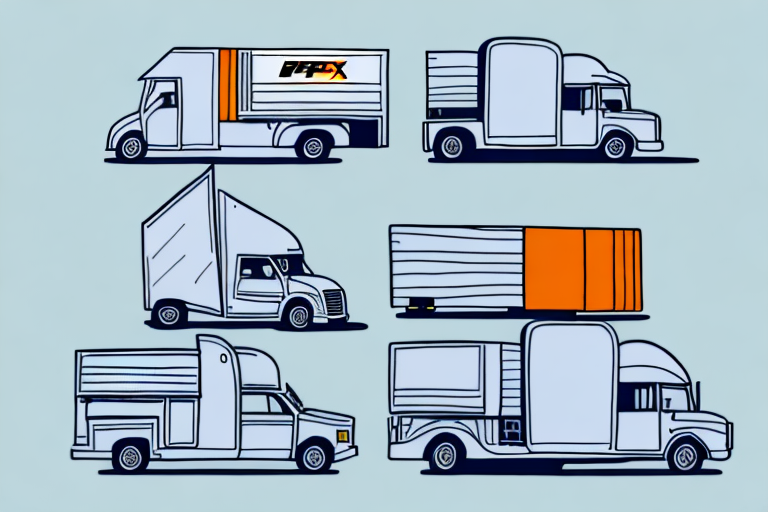Introduction to UPS and FedEx: Choosing the Right Shipping Partner
When it comes to reliable shipping solutions, UPS and FedEx stand out as two of the most prominent carriers globally. Both companies offer a diverse range of services, from standard package delivery to comprehensive freight and logistics solutions. Understanding the nuances between UPS and FedEx can help businesses and individuals make informed decisions tailored to their specific shipping needs.
History and Evolution of UPS and FedEx
United Parcel Service (UPS)
Founded in 1907 as the American Messenger Company, UPS evolved into the United Parcel Service in 1919. Over the decades, UPS has expanded its operations to include ground, air, and freight transportation, becoming synonymous with its iconic brown trucks and uniforms. As of 2023, UPS operates in more than 220 countries and territories worldwide, emphasizing its global reach and reliability (Investopedia).
Federal Express (FedEx)
FedEx was established in 1971 by Frederick W. Smith as the Federal Express Corporation, initially focusing on overnight air shipping. Since then, FedEx has diversified its offerings to include ground shipping, international delivery, and advanced logistics services. Today, FedEx serves over 375 destinations globally, leveraging technology to enhance its shipping capabilities (FedEx Official Site).
Operational Models and Business Strategies
UPS: Centralized Operations
UPS employs a centralized operational model, with the majority of its processes owned and managed internally. This approach allows for consistent service standards and streamlined operations, contributing to its reputation for reliability and efficiency.
FedEx: Decentralized and Flexible
In contrast, FedEx utilizes a more decentralized structure, often collaborating with independent contractors. This flexibility enables FedEx to adapt quickly to market changes and expand its service offerings without significant overhead costs.
Comprehensive Services Offered
Shipping Solutions
- UPS: Offers services like Next Day Air, 2nd Day Air, Ground, and Freight services.
- FedEx: Provides Priority Overnight, Standard Overnight, 2Day, and Freight services, along with same-day delivery options.
Specialized Logistics
- UPS: Focuses on healthcare logistics, automotive parts transportation, and e-commerce solutions.
- FedEx: Excels in areas such as aerospace logistics, retail supply chain management, and hazardous materials shipping.
Delivery Speed and Reliability
Both UPS and FedEx offer a range of delivery speeds to meet different needs:
- UPS Ground: 1-5 business days
- UPS Next Day Air: Guaranteed delivery by specific times based on destination
- FedEx Priority Overnight: Next business day delivery by morning
- FedEx Standard Overnight: Next business day delivery by afternoon/evening
Additionally, both carriers offer expedited services such as UPS Express Saver and FedEx SameDay for urgent shipments, ensuring flexibility and reliability in delivery options.
Pricing and Cost-Effectiveness
UPS and FedEx utilize similar pricing structures based on package weight, dimensions, and destination. However, pricing can vary depending on specific service selections and shipment details. For accurate comparisons:
- Use the UPS Shipping Calculator.
- Use the FedEx Rate Finder.
Businesses should also consider volume discounts and contract rates, which can significantly impact overall shipping costs.
Customer Service and Support
UPS Customer Support
UPS is renowned for its personalized customer service, offering services like My Choice for delivery preferences and proactive notifications. This emphasis on customer interaction enhances user experience and satisfaction.
FedEx Customer Support
FedEx prioritizes technological integration in its customer support, featuring a robust mobile app for tracking and scheduling, as well as virtual assistants like Ava for handling common inquiries. This tech-driven approach streamlines support processes and accessibility.
Technological Innovations and Advancements
Both UPS and FedEx invest heavily in technology to enhance their services:
- UPS: Pioneers in drone delivery and electric delivery trucks, aiming to reduce carbon emissions and improve delivery efficiency.
- FedEx: Develops robot delivery systems and integrates with digital assistants such as Amazon Alexa to offer seamless tracking and delivery management.
Sustainability and Environmental Impact
Environmental responsibility is a key focus for both carriers:
- UPS: Targets 25% of its total electricity consumption from renewable sources by 2025 and invests in alternative fuel vehicles.
- FedEx: Aims for carbon-neutral operations by 2040 and has committed $2 billion towards sustainable energy initiatives.
These commitments reflect the companies' dedication to reducing their carbon footprints and promoting sustainable practices within the logistics industry.
Pros and Cons of UPS and FedEx
UPS
Pros:
- Reliable and fast delivery times
- Extensive international shipping network
- Comprehensive tracking and personalized customer support
Cons:
- Higher costs for certain shipping options
- Ground shipping may be slower in some regions
- Limited additional services compared to FedEx
FedEx
Pros:
- Variety of fast delivery options, including same-day
- Wide range of specialized services
- Competitive pricing for specific shipments
Cons:
- Customer service consistency can vary
- Coverage may be limited in certain areas
- Delivery times may occasionally be less reliable
Making the Right Choice for Your Shipping Needs
Choosing between UPS and FedEx depends on several factors:
- Shipment Details: Size, weight, and destination of the package.
- Delivery Speed: Urgency of the shipment and required delivery timeframe.
- Budget: Cost considerations and available discounts.
- Additional Services: Need for specialized handling, insurance, or custom delivery options.
By evaluating these factors, businesses and individuals can select the carrier that best aligns with their specific requirements and priorities.
Alternatives to UPS and FedEx
While UPS and FedEx are leading carriers, other shipping options may better suit certain needs:
- USPS (United States Postal Service): Offers cost-effective and reliable package delivery, especially for smaller shipments and residential deliveries.
- DHL: Specializes in international shipping with a strong presence in global logistics.
- Amazon Shipping: Provides delivery services tailored for Amazon sellers and Prime members.
- Local Couriers: Ideal for same-day or next-day deliveries within specific regions or cities.
Conclusion: UPS vs. FedEx
Both UPS and FedEx offer robust, reliable shipping solutions with distinct strengths. UPS excels in international shipping and personalized customer service, making it a strong choice for businesses requiring dependable global logistics. FedEx, with its diverse range of fast delivery options and specialized services, is ideal for those needing rapid and flexible shipping solutions.
Ultimately, the best choice depends on your unique shipping requirements, budget, and service expectations. By carefully assessing your needs and comparing the offerings of each carrier, you can make an informed decision that ensures your packages are delivered efficiently and reliably.






















